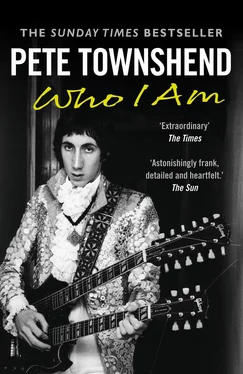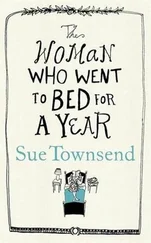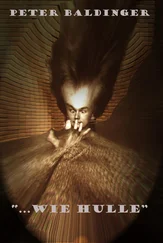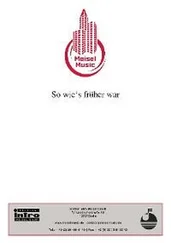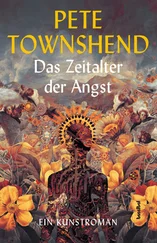1 ...6 7 8 10 11 12 ...29 And when the lights went down and the snogging started, I slid away home.
One day, while looking through the junk shop, Miscellanea, that my parents were now running, I found a mandolin, which whetted my interest in the so-called antique trade. Dad enjoyed the simple rhythm and informality of running the shop – it was often ‘closed for lunch’ while he went to the pub. In the summer I stayed with Dad for the few weeks he was playing on the Isle of Man, and when I got home I realised that while I’d been developing my banjo skills other boys also had been getting on with their music.
John Entwistle, Chris Sherwin, Phil Rhodes and Rod Griffiths were rehearsing regularly with Alf Maynard’s jazz band. Alf was a great fellow, but he played banjo, which made me redundant, although I remember playing duelling banjos with Alf at Christmas, when the band of six took in £18. I was briefly part of their brave, grown-up world and could even afford my first decent guitar. Purchased from my parents’ junk shop for £3, it had been built in Czechoslovakia and had a thin but pleasing tone.
I saw less of John Entwistle while he was playing in Alf’s band, and I left music itself behind for a while as Chris tried to help me catch up with the march of adolescence all around me. He took me to my first X film, Peeping Tom (which turned out to be elegant film noir rather than the smut I’d hoped for). He also arranged a doubled paper round for me, earning 30 shillings a week, which seemed a colossal sum of money. It was a difficult round, though, taking in most of the big houses around Ealing Common, and it was awful in winter. One cold wet morning I slept through my alarm and was sacked.
My parents gave me extra pocket money for looking after my brother Paul, but he was a wonderful little boy and I enjoyed it. Denny lurked in the wings like a vampire, but I gave her dark looks, warnings that she wouldn’t get her evil hands on my little brother as long as I was around. Paul’s arrival had made us feel like a real family, and no one was going to take that away from me.
My parents were obviously lovers again. They spent a lot of time at the local pub, which I didn’t understand at the time but I now know that they both had drink problems. Dad needed booze to feel comfortable with his peers, and Mum was trying to deaden the lifelong pain of being abandoned by her mother. She became pregnant again, and my brother Simon was born at home in October 1960, when I was fifteen.
In the last term of grammar school in spring and summer 1961, I continued to count Chris Sherwin as one of my closest friends. He was sweet to my baby brother Simon, and I knew he had a soft heart, but Chris began to harp on my failures with girls. One day, as we headed home from the pool, I lost my temper and said I would fight him. A big fellow, he just laughed and turned away.
I swung my school bag and hit him over the head; to my amazement he dropped to the ground. Assuming he was being silly, I walked off, still angry. Seconds later I felt his fist smash into the side of my head from behind. ‘You knew I had a concussion,’ he shouted. He spread word of my ‘cowardly act’ all over school, which sullied my reputation to the point where John Entwistle seemed the only one who would have anything to do with me.
Then, if possible, my social standing fell even lower. I was cycling home one day, past some boys from my school throwing stones at an old man’s windows, when a policeman showed up. The boys escaped but the copper grabbed me. Incriminated by wearing the same school uniform as the vandals, I was arrested and persuaded with the usual threats of prison to give up the boys’ names.
Next morning the headmaster called out the names I had supplied, and after a pause added my own. We all received the cane, naturally. But this was a new low point for me, as rumours circulated that I had ‘grassed’ on the stone-throwers. Mum remembers seeing me sitting hangdog in a small public park next to the school; it was raining, but still I wouldn’t go in. Dad was so worried he came to speak to me, but I was too ashamed to tell him my problems. My schoolwork slumped, and I locked myself away with my guitar, swearing to go it alone somehow.
By the end of the spring term I had electrified my Czech guitar and bought a small amplifier. John had made his own bass, and we rehearsed together at my house. We would visit a fish-and-chip shop in Acton and walk back to Ealing with our tongues scalded by the hot oil, sharing dreams.
One day Denny burst into my room while John and I were playing music. ‘Turn that bloody row down,’ she shouted.
I looked at her coolly, not replying, but picked up my small blue amplifier and threw it violently against the wall. ‘Fuck off,’ I said, feeling very calm as the amp smashed to the floor.
Denny went pale and left the room.
‘Great,’ John said dryly.
John was playing bass guitar with a group started by our school friend Pete Wilson, a fan of Cliff Richard and The Shadows. Pete’s guitar playing was enthusiastic but clumsy, so when I was invited to join the band I was flattered but ambivalent. Having grown up with the notion that I was going to be an artist of some sort, the idea of playing Shadows songs didn’t set me on fire, but Pete became a friend and he was an encouraging, natural leader.
Mick Brown, our drummer, was a competent musician and one of the most amusing people I’ve ever met. He also had a tape recorder, the first I’d ever come across, and I realised immediately that this was an extraordinary creative tool. He made the first recording of me as I played The Shadows’ ‘Man of Mystery’ solo on my Czech guitar. It sounded good, and I soon got hold of a basic tape machine of my own.
I loved cartooning and drawing – my childhood tour buses had earned praise from Alex Graham, the creator of the famous British cartoon Fred Basset – and I did very well in my art classes at grammar school. The art master encouraged me to take some extramural classes, so in my last term at Acton County in 1961 I became a part-time art student at Ealing Art College. There I began attending Saturday morning introductory lessons with my friend Martin and his next-door neighbour Stuart, hoping to draw nude models and make pots. Martin gave up after a while, but Stuart and I carried our portfolios over the Common together, and tried to dress in what we thought was a bohemian manner.
To make money I worked in Miscellanea. Mum and I often moved furniture together, sometimes entire houses full, and I became strong and wiry. I also began to learn about human nature as it applied to business. Most customers haggled, and some, if they got a bargain, visited regularly to crow about it. The dealers were always quietly looking for a steal.
In the last few weeks of school, exams behind us, the atmosphere changed for the better. It seemed everyone except Chris had forgiven me, and even he had stopped glaring. The Dixieland band I had been excluded from practised as they walked back and forth outside school, and because Alf wasn’t allowed into the school (he was older and had a job) I was invited to step in on banjo. After the months I’d been away from the band one thing became clear: I had progressed faster than the others. At school, for the first time, I felt a part of the human race.
Roger Daltrey had been expelled for smoking, but was still impudently showing up on campus to visit his various cronies. I’d first met him after he won a playground fight with a Chinese boy. I’d witnessed the fight, and I’d thought Roger’s tactics were dirty. When I’d shouted as much, he had come over and forced me to retract. Since then I’d seen Roger around at the foot of Acton Hill, carrying an exotic white electric guitar he’d made himself. He was usually with Reg, a friend I knew from infancy, who carried a 15-watt VOX amplifier. Serious stuff.
Читать дальше
